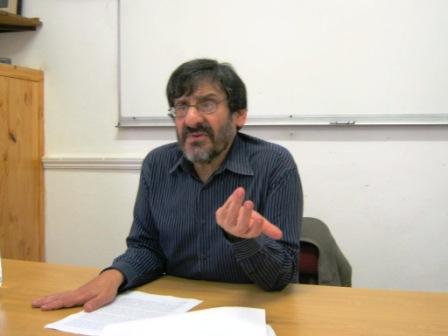
Welcome to the season of breathless commentary, when the gulf between political noise and reality becomes ever wider. It is a time to look beyond the loud sounds to what may be really happening.
The cause of the breathlessness is the African National Congress (ANC) policy conference, which, even though it cannot change policy, is invested with deep meaning by reports and commentaries. We are told that the ANC plans to toughen its stance on business and the affluent to steer through what a document to be tabled at the meeting calls a "second transition".
The document is not nearly as dramatic as it seems: radical language is used to support moderate policy proposals. The ANC knows it needs to negotiate change and that only limited adjustments are possible.
So, while the policy conference will prompt many reports claiming that the ANC is about to make life much more difficult for business and the wealthy, these should be treated with care. Anything that wins support this week must be adopted at the ANC's national conference in Mangaung - if it is, it will need to be negotiated with economic interests if it is to become government policy or law. No one with influence in the ANC has suggested that the time to negotiate with the owners of wealth has passed, and a gap between rhetoric and detail is inevitable, particularly as key ANC actors have an interest in claiming to support radical change even when they don't. These realities have prompted commentaries and reports that move from one extreme to the other - from taking documents promising radical change at face value to seeing them purely as tools in a factional battle.
Since Deputy President Kgalema Motlanthe criticised the second transition document and President Jacob Zuma defended it, it has become common to see it purely as a proxy in the battle for the ANC presidency: if you are in the ANC and like the document, you want Zuma re-elected; if you dislike it, you want him defeated.
But this view does not fit the evidence; it distracts us from what may be really happening in the ANC and what this may mean for the economy. We were told at the weekend that the author of the second transition document is ANC executive member Tony Yengeni. But he is a key member of the ANC's nationalist faction, which hopes to remove Zuma. At the weekend, he also called for an open discussion on ANC leadership, a position associated with Zuma opponents. So how does a document authored by an opponent of the ANC president become a vehicle to get him re-elected? And why did Congress of South African Trade Unions president Sdumo Dlamini, a supporter of Zuma's re-election, reject the document?
The fault lines on the document and those on the presidency seem different. Nor has anyone explained why Zuma's campaign is furthered by a document arguing that the ANC needs to get tougher on the wealthy. Logic suggests, therefore, that the document may have little to do with the race for positions and more to do with something else. That something else is clear from other documents being discussed this week - ANC anxiety that many of its voters are unhappy with it and that it needs to show them it cares. The second transition document is one of several that propose it do more to tackle poverty and show the people who elect it that it has not abandoned them.
There is wide agreement on this within the ANC - the debate is about how to win back voters' trust, not on whether to try this. The second transition document suggests one strategy. Its critics argue that it will not solve the ANC's problem. The debate is about how to secure the ANC's future: it cannot be reduced to a proxy election campaign.
Because the ANC has a strategic interest in proposals for change, they may well be adopted at Mangaung - the call for a new tax on mines seems a strong contender. This does not mean a new radicalism is abroad in the governing party. It simply means the ANC's own interests have forced it to put some proposals on the table that won't fundamentally change its economic policy approach but will need a response from those who own wealth.
If that happens, the need to avoid breathlessness will grow. Governing parties in democracies propose changes that affect business's interests all the time. Given our levels of poverty and inequality, it would be strange if there were no proposals for change. Hysteria, which presents policy proposals as Bolshevik manifestos, will make the search for workable solutions far harder.
Our economic and social realities are unsustainable. Change is essential and, whatever their merits and the motives behind them, ANC proposals would start a conversation we badly need. The need for reasoned discussion will not end when the season of political loudness wanes after Mangaung.
- Friedman is director of the Centre for the Study of Democracy at Rhodes 老虎机游戏_pt老虎机-平台*官网 and the 老虎机游戏_pt老虎机-平台*官网 of Johannesburg. This article was published on Business Day.
